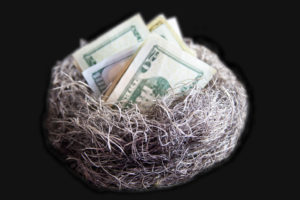 This week’s top story: Smart Money podcast on financial fears, and if you need life insurance or not. In other news: What makes a good store credit card, and how to avoid bad ones, tackling financial insecurity, and why stocks and bonds are both falling.
This week’s top story: Smart Money podcast on financial fears, and if you need life insurance or not. In other news: What makes a good store credit card, and how to avoid bad ones, tackling financial insecurity, and why stocks and bonds are both falling.
Smart Money Podcast: Financial Fears, and Do You Need Life Insurance?
This week’s episode starts with a discussion about overcoming our financial fears.
What Makes a Good Store Credit Card, and How to Avoid Bad Ones
It’s not that store cards can’t deliver value — in some cases, they can be ideal picks. But before you’re pressured into opening one, know which red flags to watch for.
When Pinching Pennies Isn’t Enough: Tackling Financial Insecurity
Financial counselors, nonprofits and other organizations can help you find your financial footing.
Stocks and Bonds Are Both Falling. Here’s Why.
A look at why the markets declined in 2022, and how to cope with falling stocks and bonds as you near an important financial goal.
 Today’s top story: How to afford your meds and support your health. Also in the news: A new episode of the Smart Money podcast on reducing child care costs, what the S&P bear market means for you, and why you might want to hold off traveling until September.
Today’s top story: How to afford your meds and support your health. Also in the news: A new episode of the Smart Money podcast on reducing child care costs, what the S&P bear market means for you, and why you might want to hold off traveling until September. Today’s top story: What to do if you save too much for retirement. Also in the news: The ins and outs of starting a car, financial pros are hanging on to stocks, and why you need multiple savings accounts.
Today’s top story: What to do if you save too much for retirement. Also in the news: The ins and outs of starting a car, financial pros are hanging on to stocks, and why you need multiple savings accounts. Today’s top story: The 2 costs that can make or break your nest egg. Also in the news: Buying stocks in a year of uncertainty, getting paid for family caregiving, and how people spent their stimulus checks.
Today’s top story: The 2 costs that can make or break your nest egg. Also in the news: Buying stocks in a year of uncertainty, getting paid for family caregiving, and how people spent their stimulus checks.